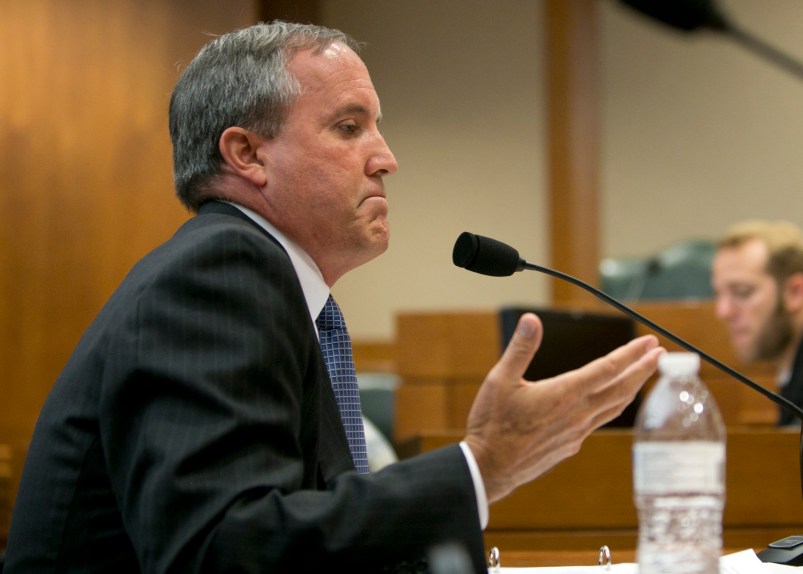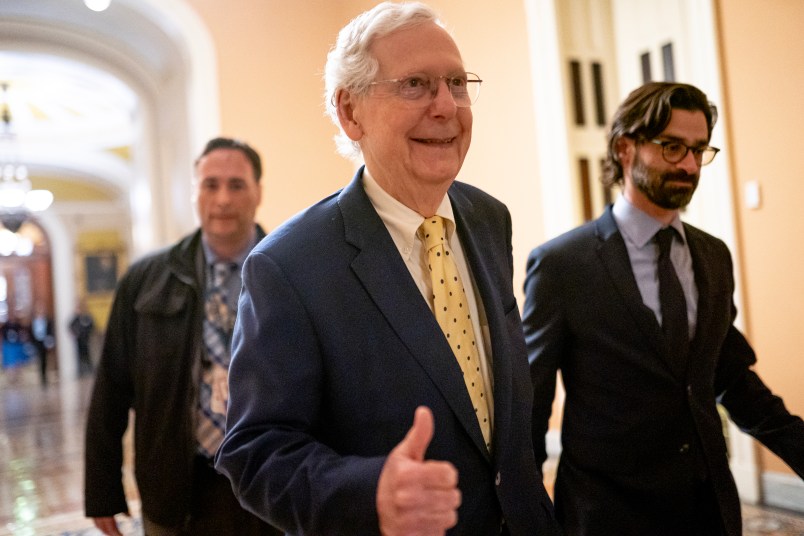In response to the Obama administration’s announcement that it would require major reductions in carbon emissions from American power plants, supporters and opponents alike were quick to point out that without a strong international agreement to curb carbon emissions, unilateral U.S. reductions will prove inadequate in the face of what is truly a global challenge. The administration’s supporters praised the President for sending a clear signal to the world that America will lead by example. Opponents, meanwhile, feared that unilateral U.S. reductions were a sucker’s play, setting us up to be taken advantage of by China and other competitors that have no intention of following our lead.
This debate is by no means specific to climate change; its basic contours are familiar to other national security and foreign policy debates — everything from arms control to trade negotiations. Is the United States an indispensable nation, with both the capability and responsibility to lead the rest of the world from the front, especially when confronting threats to global security and order that endanger all? Or is America better served by behaving more like a “normal” nation in the international system, maneuvering to advance a more narrow understanding of our self-interest? If America leads, will others follow? Or will they stab us in the back?
There is a clear answer. Building, strengthening, and leading an international community of free people and just societies has been the bedrock of American grand strategy since 1945. When we have followed that path, Americans and the world have prospered. When we have strayed from it, we and others have suffered. This is the strategic legacy of Roosevelt, Truman, and Eisenhower, and leaders of both parties have laid claim to it ever since. Obama spoke in these terms at West Point last week, describing the urgent need to “strengthen and enforce international order” by evolving “institutions to keep the peace and support human progress.”
 The strategy of the greatest generation has never been more valid than it is today. Security and governance in cyberspace, pandemic disease, nuclear proliferation, globe-spanning “dark networks” that traffic in everything from drugs to guns to human beings – these are the security challenges of our time. They are threats to the security of all nations, and all people. And among all of them, climate change most of all defies unilateral solutions.
The strategy of the greatest generation has never been more valid than it is today. Security and governance in cyberspace, pandemic disease, nuclear proliferation, globe-spanning “dark networks” that traffic in everything from drugs to guns to human beings – these are the security challenges of our time. They are threats to the security of all nations, and all people. And among all of them, climate change most of all defies unilateral solutions.
Climate change is a clear threat to global security and prosperity. The 2014 Quadrennial Defense Review, the main strategy document produced by the U.S. Department of Defense, identified climate change as a threat multiplier that will “increase the frequency, scale, and complexity of future [military] missions.” Consequences are already apparent; the ranges of once isolated subtropical diseases are expanding to population centers, and extreme weather events around the world are occurring more often and hitting communities harder. Things are projected to get worse as migration resulting from rising sea levels increases displacement, poverty, and desperation in already weak states.
It’s clear that climate change clearly cannot be addressed by any single nation. The problem requires strong international institutions and clear American leadership, simply because it may be the greatest collective action problem we have ever faced. The United States is responsible for only 17 percent of the world’s carbon emissions, and that share is dropping each year. We cannot hide from the fact that a global response is the only answer. But some fear that there are strong incentives for individual nations to ‘cheat’ on any potential treaty to reduce emissions. Freeloaders may be tempted to believe that they can somehow keep emitting massive amounts of carbon while leaving the solution to others.
Fortunately, we’ve successfully dealt with similar dynamics before. Most international agreements, from arms control to trade, require a familiar mix of trust-building measures, verifiable and mutual steps toward a final standard, verification, and carrots and sticks for enforcement. Those who insist that climate change is somehow beyond the purview of this time-tested approach are ignoring the fact that building and leading international coalitions to solve big problems is America’s core competency on the world stage.
It is past time to take the global lead on countering climate change. If America does not step up and marshal the world against this threat, no other nation can or will. The potential for action on such a significant challenge is a critical test of President Obama’s interpretation of American exceptionalism: that it is our willingness to affirm international norms and the rule of law through our actions that defines us as indispensable.
Against climate change, more than almost any other global challenge we now face, isolationism is revealed as an absurd pipe dream. No border fence or protectionist trade policy will ever reach high enough to shield us from the atmosphere, and no American fighter aircraft or cruise missile – however advanced – can stave off a pandemic disease or a rising ocean.
Modern history has proven time and again that no country can remove itself from the impact of global forces. In the 1920s and ‘30s, the United States tried to safeguard American prosperity by building the economy at home while walling it off from the world via tariffs and other protectionist measures. For a time, America prospered while the rest of the world became impoverished to the point of desperation. Eventually though, the dream of safety in solitude proved false as the United States was pulled into the most serious global economic depression and most devastating armed conflict in human history.
The lessons of that experience shaped the modern world. After 1945, the United States built a global economic order, based on a reinforcing network of international agreements and institutions. Rather than wishing the world away, we took the lead in building a better one. The result has been an unprecedented period of global prosperity and human opportunity.
In light of the history, the magnitude of the challenge, and the indisputable consequences of inaction, it is nothing less than an embarrassment that the United States has failed to lead an international coalition to address climate change. Our failure to craft and shape – much less ratify – international climate agreements demonstrates not merely a lack of leadership, but an abdication of American strength.
We can already see the consequences of climate change on a global scale, and the results of continued inaction will be more severe still. However, the opportunities if we do act are equally significant. Riding a wave of innovation forward into the 21st century, the United States can reap the benefits of new jobs, new technologies, and a new sense of purpose – but only if we choose to lead now.
Mike Breen is the Executive Director of the Truman National Security Project and the Center for National Policy.









